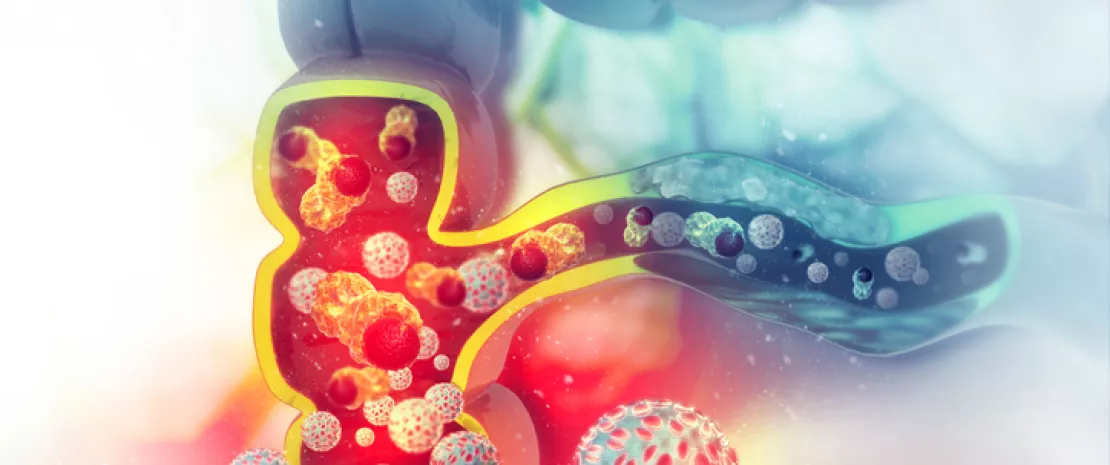Colorectal cancer: from dysbiosis to DNA alteration
The role of dysbiosis in the pathogenesis of colorectal cancer is revealed: it seems to promote colon carcinogenesis via DNA alterations in the host. This could mean that a non-invasive blood test could be used for detection purposes.
Lay public section
Find here your dedicated section
Sources
This article is based on scientific information

About this article
Colorectal cancer (CRC) is one of the most common malignant conditions worldwide and is associated with a high mortality rate. It seems to result from complex interactions between the host and its environment: stress factors seem to cause alterations to the DNA of the colon cells involved in the onset of cancer. One of the suspected factors is gut dysbiosis.
Results in mice…
A French team studied DNA alterations in 136 mice with no microbiota, which received, via fecal microbiota transplant (FMT), samples of fresh stools from either 9 patients with CRC, or 9 other individuals with normal colonoscopy results. Seven weeks after the FMT, the mice which had received the CRC stool samples presented slight inflammation. An examination of their colon at 7 and 14 weeks revealed more precancerous lesions, known as aberrant crypt foci, with a greater number of hyper-methylated genes. Some bacterial species proved to be associated to precancerous lesions (Firmicutes, Clostridia), as well as a lower abundance of types of bacteria known for their anti-inflammatory effects or butyrate-producing bacterial species.
…confirmed in humans
In order to determine if gene methylation observed among the mice was also associated with gut dysbiosis in humans, the team analyzed the tissue, blood and stools of the 18 CRC and control patients from the initial experiment. This confirmed the correlation between the composition of the microbiota and the level of epigenetic alteration to the DNA: the levels of methylation of 3 genes proved to be discriminatory between the healthy patients and the CRC patients.
Immediately afterwards, a simple and reproducible blood test, aiming to diagnose colorectal tumors at an early stage among asymptomatic patients, was devised based on the calculation of a Cumulative Methyl Index (CMI) of certain specific genes. It was validated in a pilot study that included 266 individuals (95% (sidenote: Specificity Ability to detect only those with the disease (to obtain the fewest false positives) ) , 59% (sidenote: Sensitivity Ability to detect all those with the disease (to obtain the fewest false negatives) ) ), and was later confirmed in a prospective study of 999 asymptomatic individuals who were to have a colonoscopy (97% specificity, 43% sensitivity).
A CRC marker?
This work suggests that dysbiosis associated with CRC could promote carcinogenesis via epigenetic dysregulation of the genome. According to the researchers, the CMI for certain genes could constitute a marker for CRC; it could even predict the individual efficacy of prebiotic supplementation among individuals presenting a moderate risk.






